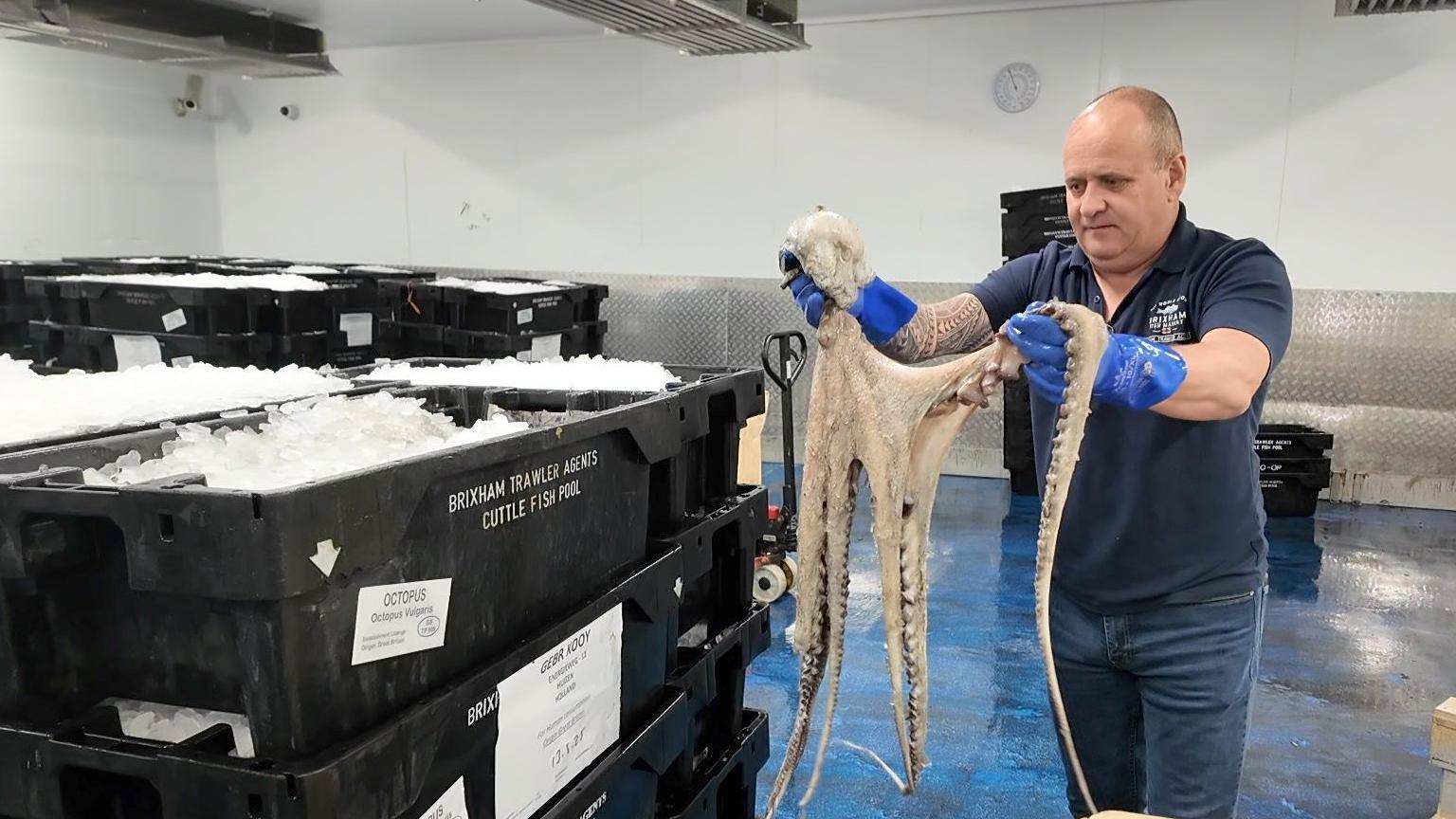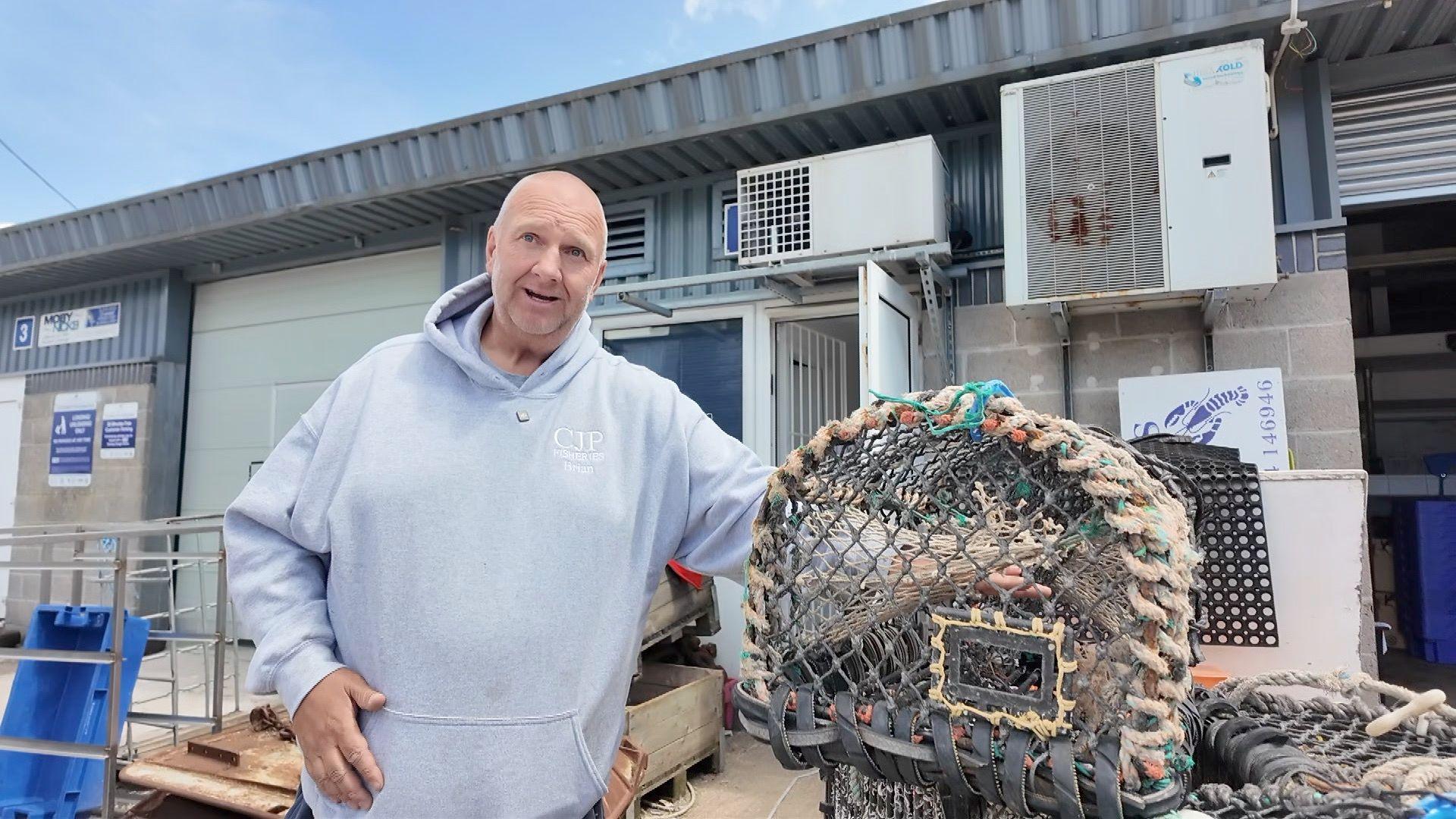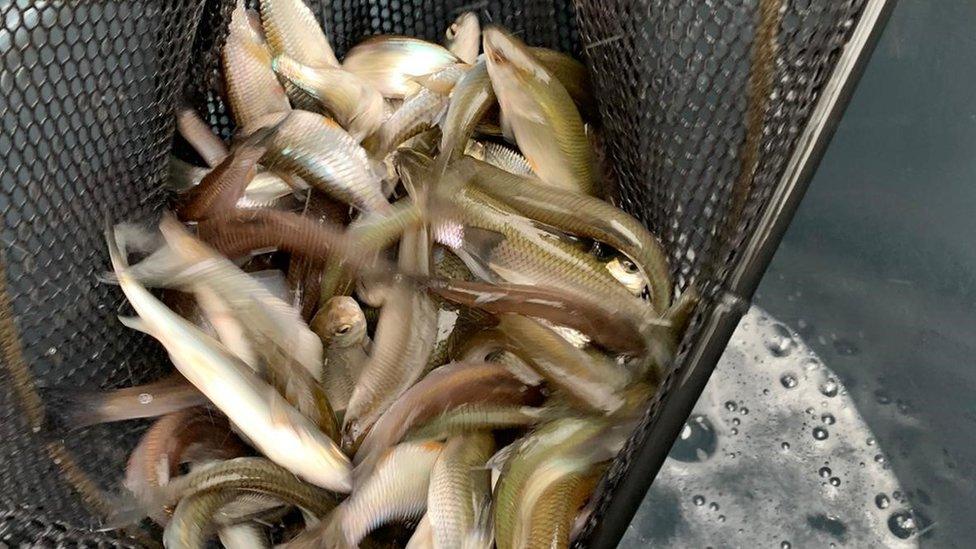'Octopus invasion is ruining our livelihoods'

Barry Young holds up a caught octopus at Brixham Fish Market
- Published
Some fishermen in south-west England say an "invasion" of octopus and a local bylaw are "decimating" the Devon shellfish industry.
The octopus, usually found in the Mediterranean, are being found in lobster and crab pots off the coastline. Fishers said they were landing between four and six tonnes of them a day.
They said open escape holes in pots for juvenile shellfish, enforced by the bylaw, allowed the creatures in and out to eat shellfish, and fishers wanted to close the gaps.
The authority responsible for implementing the bylaw said the holes could be closed if fishers were trying to catch octopus only, and it was working on trying to find a long-term solution.
'It's like McDonald's'
It is thought the octopuses are coming from Morocco, as fishermen there are reporting a shortage of the creatures.
Under the unique bylaw for Devon's waters, some types of crab pots must have "escape holes" as a conservation requirement to allow younger shellfish to escape.
Fishers said such escape holes were allowing octopus to enter, devour crabs and leave, resulting in empty pots and no catch for the day.
Plymouth crab fisherman Brian Tapper said: "The octopus are ruining us... [They are] coming into the crab pots by the side hatch and it's like McDonald's for them.
"They go through 50 pots and all you get in here are empty shells."

Brian Tapper says any octopus that gets inside a crab pot leaves behind only empty shells
Barry Young, of Brixham Trawler Agents, described the influx as "an invasion" and said the octopus were "decimating the crab fishery at the minute".
"At this morning's auction, we got 27 tonne of these Mediterranean octopus. We would normally be lucky to get 500kg [1,100lb]," he said.
"Long term, it could be devastating for the shellfish industry in the UK if these octopus stay.
"Unless we see a reduction in these octopus, we won't see any shellfish."
There are also concerns about a shortage of crabs, scallops and lobsters in restaurants and fishmongers.
However, other fishers are welcoming the arrival, as they fetch a high price when sold in Europe.
'Short-term action'
The escape gaps regulation was placing local fishermen at a significant disadvantage compared to their Cornish counterparts, fishers also argued.
The Devon and Severn Inshore Fisheries and Conservation Authority (IFCA) is responsible for implementing the bylaw.
It said it had listened to the concerns and held an emergency meeting at the end of last week.
It said it was aware of the current significant difficulties being experienced due to the "predation of octopus within shellfish pots".
It has agreed to short-term action, allowing fishermen to close the escape hatches, as long as they are only fishing for octopus at the time, and release any crabs or lobsters caught.
It said it was in the process of gathering information and evidence, which would be presented to IFCA's bylaw and permitting sub-committee on 26 June, when issues relating to the octopus industry would be considered in more depth.
Follow BBC Cornwall on X, external, Facebook, external and Instagram, external. Follow BBC Devon on X, external, Facebook, external and Instagram, external. Send your story ideas to spotlight@bbc.co.uk, external.
- Published21 December 2021
